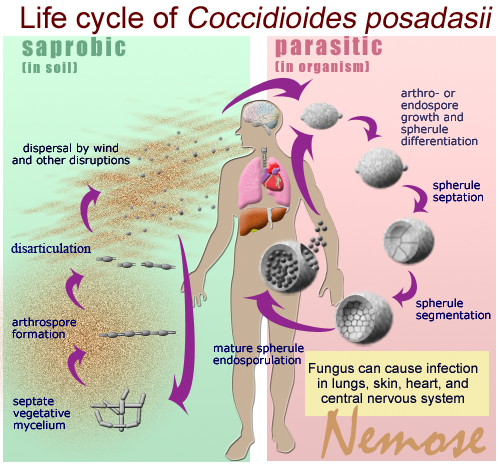Coccidioides posadasii
Coccidioides posadasii is thermally dimorphic soil-dwelling fungi endemic in the United States, Mexico, and Central and South America.
Molecular studies about the genome of the fungus Coccidioides have demonstrated two nearly identical, but well identified species, Coccidioides immitis and C. posadasii, known as "California" and "non-California" species, respectively. Phylogeneic analyses using single nucleotide polymorphisms, genes, and microsatellites show that C. posadasii represents a divergent, genetically recombining monophyletic clade.
C. posadasii is morphologically indistinguishable from Coccidioides immitis. Phenotypically it differs from Coccidioides immitis by growing more slowly on media containing high salt concentrations.
This fungus is a causative agent of coccidiomycosis (one of the true systemic mycoses) in humans. The disease is also called Valley Fever.
The fungus belongs to the mitosporic or imperfect fungi (fungi with no known sexual stage).
Both C. immitis and C. posadasii are potential bioterrorism agents. As a result, in the USA and elsewhere, these organisms fall under stringent regulations that governs their possession, use and transfer.
